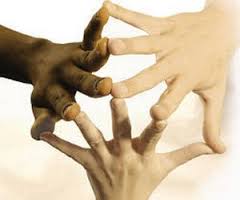We seem to be global witnesses to what I can only characterize as neo-tribalism. To a large extent, this is the result of social structures that emerged during the Industrial Revolution. Universalist claims were articulated in the name of religion: Christianity or Islam. Economic and political systems were coherently held together by capitalist empires and by a systemic unification resulting from the Bolshevik Revolution. Unfortunately, these structures that expressed universality became progressively fractured. Although Islam continued to retain greater coherence, the non-proselytizing variant survived, and can still be found among Jews, Hindus and the volk of Germany. The contemporary expression of this attempt to reorganize a coherent system can be seen in our “economic globalization” that has resulted in the continued relative pauperization of the many and the disproportionate accumulation of wealth and benefits of the multinational oligopoly. Feeble attempts to maintain a small degree of palliation were sought on a regional basis by the European Union. However, to date, these have only resulted in making the poor poorer and the rich richer, while the executives of globalizers are occupied in employing instruments of the International Monetary Fund to reposition poverty. Economic dislocation has progressively eroded nascent attempts at equity, beginning with the Prussian welfare state, Keynesianism, the New Deal in the U.S.A or the Swedish social welfare attempts in Northern Europe.
The central feature of globalization appears to be anchored in a strategy of breaking down society and the nation state into small territorial units for easier control. Capital becomes increasingly mobile, while labor becomes fixed. Legal migration fulfills the objective of filling convenient gaps by Koreans mining in Germany, Nepalese constructing in Bahrain, or Mexicans working in agricultural fields of California, to name a few. Illegal migration, in the meantime, surreptitiously winks through porous borders. The reserve army of labor expands or contracts like a rubber band as compelled by the needs and requirements of the capital.
How is this remotely related to xenophobia, one might reasonably ask? In the absence of a specific date, roughly in the late 20th Century, the phrase “identity politics” entered the vocabulary, although the concept surely predates the term. This particular variety, I would characterize as primordial birth identity. This genre, systematically attenuated as society secularized and became increasingly more complex. We have variably in more recent times, witnessed the surge of this identity, be they Catalan, Basque, Scots, or Quebecers, and most recently the Venetians. As the broader identities began to disintegrate, default identities provided smaller geographic units with coherence and an anchor for unity and pride. A small example to illustrate this: a few years ago I visited a group of five highly trained Pakistani Generals at their headquarters. Dressed in traditional clothing and a Pathan cap, I joined them for a bottle of scotch whiskey and talked a bit, among other things, of their experience in the U.S. advanced military staff courses in Georgia, Kansas and Oklahoma. Even though they held high scores and were placed first or second in their class, they were called Ni..er on a daily basis. While they were not in any way religious talibs, they sat ramrod straight and said. “We are proud Muslims” This was their identity in the face of racism. The most pernicious among these many characteristics is the issue of racism. Color has become the easiest signifier in the differentiating of self from others, and can be seen as primary among equals of the most reprehensible features of xenophobia.
What triggers this reversion from a somewhat broad-based, though uneven, social formation, to the current neo-tribalism in its xenophobic form? It seems apparent that the substantial economic insecurity and inadequacy of the systems of distribution has refractured social cohesion and regressed the population back to its tribal roots, with a warlord structure.
The search for a new integrating identity has begun, initiated on the political right by the crypto Nazis and the religious zealots, each in turn seeking some form of purification and its preferred rites conditioned by private property. On the political left, one finds, a search for a community with an accompanying organic consciousness that fulfills the unencumbered human potential. Reason replaces competition as the engine of history. There are initiatives on a national scale that formulate some form of wealth re-appropriation via nationalization as the beginning of the process in countries like Venezuela, Bolivia and Ecuador.
It is argued that social differentiation dates from the Neolithic period in human history dating back to 12,000 years. From that period to the 21st Century, we have struggled to adapt a set of norms aimed at breaking the fine line that has inexorably resulted in one or another form of xenophobia.
The eminent anthropologist Claude Levi-Strauss, in his presentation of a UNESCO pamphlet on racism, commented:
“It is diversity itself which must be saved, not the outward and visible form in which each period has clothed that diversity, and which cannever be preserved beyond the period which gave it birth. We must therefore hearken for the stirrings of new life, foster latent potentialities, and encourage every natural inclination for collaboration which the future history of the world may hold….(http://archive.org/stream/racehistory00levi/racehistory00levi_djvu.tx
I thank David Levy for drawing this pamphlet to my attention.
Illustration by: Oleg Dergachov. Oleg Dergachov is a Ukrainian painter, graphic artist, cartoonist and sculptor who works and teaches in his cozy Westmount studio in Montreal.










